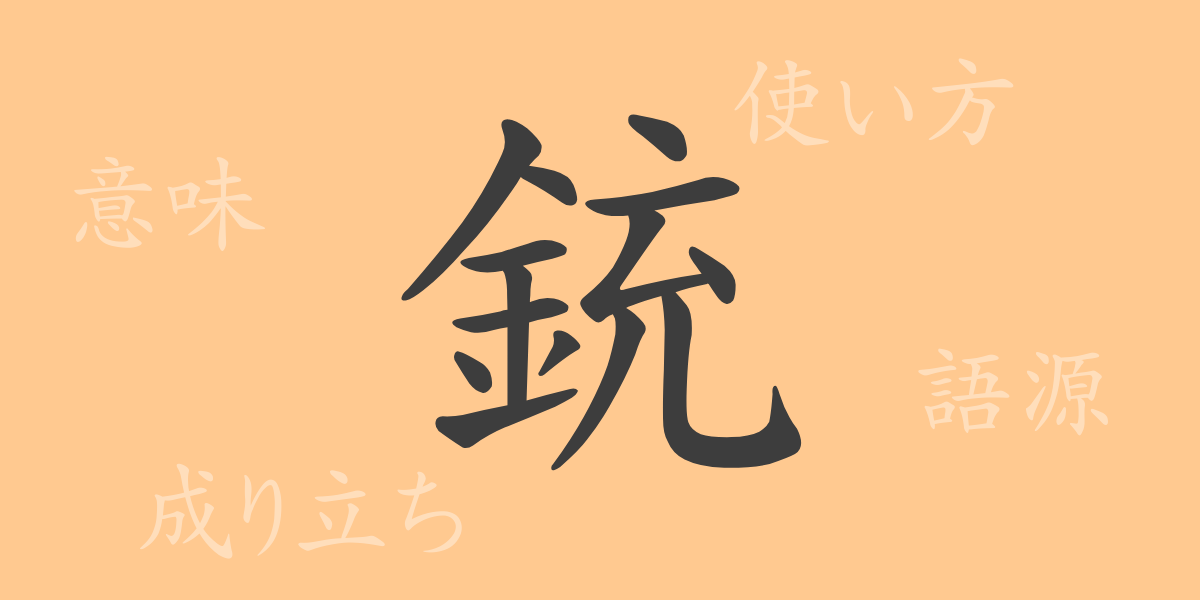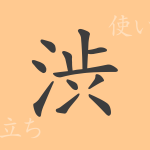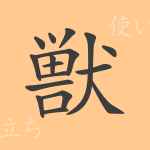Since ancient times, “銃(じゅう, jū)” has rewritten human history. This single character embodies deep history and various cultural backgrounds. In this article, we will explore the full scope of the Japanese common kanji “銃(じゅう, jū)”—from its origins to its meanings, uses, and even idioms and proverbs. We delve into not only the weapon’s aspect but also the weight of the word “銃(じゅう, jū)” as it is used in language.
銃(じゅう, jū)の成り立ち(語源)
The origin of “銃(じゅう, jū)” traces back to weapons using gunpowder in ancient China. Known as fire weapons (火器, かき, kaki), the technology evolved to utilize gunpowder’s explosive power to launch projectiles. In Japan, it became known as “鉄砲(てっぽう, teppō)” and had a significant impact on warfare during the Sengoku period.
銃(じゅう, jū)の意味と用法
The kanji “銃(じゅう, jū)” primarily refers to weapons that fire bullets using gunpowder. Broadly, it includes various firearms such as rifles, pistols, and shotguns. Usage examples include “銃を構える(じゅうをかまえる, jū o kamaeru)” (to aim a gun), “銃声(じゅうせい, jūsei)” (gunshot), and “銃器の所持(じゅうきのしょじ, jūki no shoji)” (possession of firearms).
銃(じゅう, jū)の読み方・画数・部首
The kanji “銃(じゅう, jū)” reflects its shape and function.
- 読み方: 音読みでは「ジュウ(じゅう, jū)」、訓読みでは特にありません。
- 画数: 全部で14画です。
- 部首: 部首は「金(かねへん, kanehen)」です。
銃(じゅう, jū)を使った熟語・慣用句・ことわざとその意味
In Japanese, expressions containing “銃(じゅう, jū)” frequently appear due to its powerful imagery. For instance, “銃後(じゅうご, jūgo)” refers to the home front that supports soldiers, implying a peaceful life. Additionally, “銃口を向ける(じゅうこうをむける, jūkō o mukeru)” is a metaphorical expression meaning to take an aggressive stance.
銃(じゅう, jū)についてのまとめ
The kanji “銃(じゅう, jū)” holds many stories within its shape and function, expressed in various forms in language. Beyond its aspect as a weapon, it has left a profound mark on culture and language. Through this article, we hope you have gained an appreciation for the historical background and linguistic richness of “銃(じゅう, jū).”

























